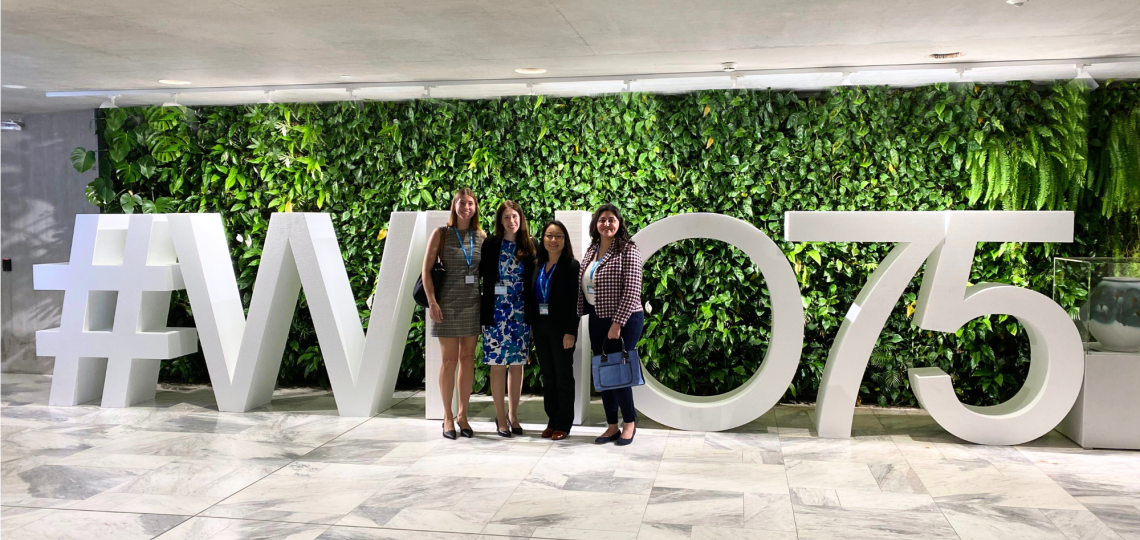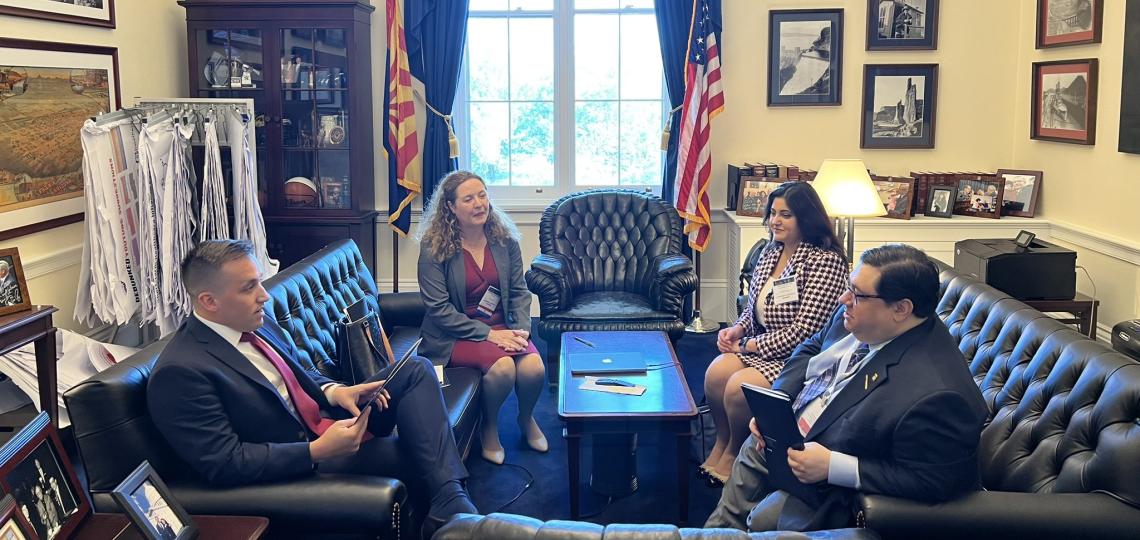
The Global Surgery Advocacy & Policy Fellowship at Baylor College of Medicine is the first of its kind in the United States. Developed as a collaborative initiative between the Michael E. DeBakey Department of Surgery and Rice University’s Baker Institute for Public Policy, he fellowship provides an immersive, cross disciplinary training experience that combines global surgery education with foundational skills in health policy and advocacy.
Fellows engage deeply with local, national and global health policy by identifying a focus area, analyzing relevant legislation, and developing actionable recommendations to improve access to surgical care.. Through mentorship from faculty at both Baylor College of Medicine and the Baker Institute, fellows gained experience in policy research, health systems analysis, and global health diplomacy. Each fellow completed a capstone policy brief or project that was presented and submitted for publication.

As the fellowship’s first trainee, Dr. Katayoun Mandani explored how healthcare professionals can translate frontline surgical insights into the language of policymakers.
In her first-year project, Dr. Mandani analyzed trauma access across Houston using ArcGIS modeling to map travel times to Level I and II trauma centers. Her research highlighted the lack of a centralized trauma system database and underscored the need for coordinated data infrastructure to guide citywide trauma planning and future trauma center placement, which are insights with implications for cities and developing healthcare systems worldwide.
During her second year, Dr. Mandani examined equity in global academic exchange programs. While U.S. residents commonly rotate in low-resource settings, she identified the substantial structural barriers that prevent trainees from other countries from accessing similar opportunities in the United States. Her work emphasized the need for policies that promote bidirectional, equitable exchange.
Reflecting on the fellowship, Dr. Mandani noted, "Surgeons and physicians have a unique insight into what the system is lacking but to translate that into a language policy makers understand is a skillset we are never taught.” This fellowship bridges these gaps and helps the trainee learn how to communicate important issues to potentially shape law making, city planning and more.
Dr. Madani notes how crucial this fellowship is in making a difference for those without access to surgical care. “For 40 years, surgeons, nurses, anesthesiologists, everyone in Global Surgery, has worked really hard to provide care in areas where there is none. Research has been done to create data and we have tried to raise our voices and scream the loudest that we can to be the voice for the neglected surgical patients. However, without this knowledge of how to properly advocate and speak the language of policy, we will pass another 140 years without closing this gap.”
Our second fellow, Dr. Ramitha Ruwanpathirana, a post-MBBS doctoral trainee from Sri Lanka, expanded his understanding of US- and global-health policy with a focus on surgical systems strengthening and potential for AI in healthcare.
Dr. Ruwanpathirana’s capstone project focused on developing potential baseline recommendations for Nepal’s National Surgical Obstetric, and Anesthesia Plans (NSOAPs, which are country-driven frameworks that guide ministries of health to increase capacity and access to safe and affordable surgical and anesthesia care. Drawing on his cultural insight and analytical skills, he identified system-wide barriers and proposed context-specific strategies to improve access to essential surgical services across Nepal.
His work contributed to the growing global momentum behind national surgical planning as a foundation for equitable health systems.
Recruitment Status
We are not currently recruiting for this position. Thank you for your interest in the Global Surgery Advocacy and Policy Fellowship.








